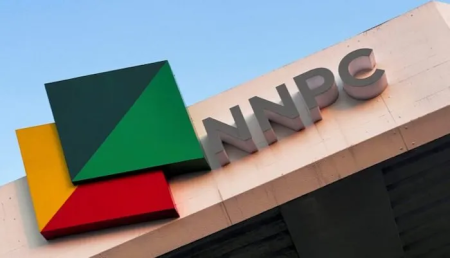
Port Harcourt — Make no mistake about it, the political kings in Nigeria are state governors, serving or retired. They are not only kings they are also king installers. Constrained by a constitutional tenure of two terms, these political monarchs easily reinvent their careers and influence as Ministers and legislators. From these, they plot for higher posts and access new heights of position and power. We see in the power configuration at the centre. President Ahmed Tinubu is a former governor of Lagos State; Vice President Kashim Shettima is a former governor of Borno State; Senate President Godswill Akpabio, Nigeria’s No 3 citizen, is a former governor of Akwa Ibom State. Included in the 48-person ministerial list, of which the Senate cleared 45, are eight former governors if you remove Nasir El-Rufai of Kaduna who announced his withdrawal from the screening as I was writing this. The rest are Nyesom Wike (Rivers), Dave Umahi (State), Mohammed Badaru (Jigawa), Bello Matawalle (Zamfara), Simon Lalong (Plateau), Gboyega Oyetola (Osun), Ibrahim Gaidam (Yobe) and Atiku Bagudu (Kebbi).
We see the same pattern in the Senate, which has been dubbed the retirement home of ex-governors.
A total of 14 former governors are in the 10th Senate as was the case in the 9th Senate, which rose finally on 11 June 2023. And they are not just benchwarmers in the Red Chamber as many of them have been named to chair key committees. Without a constitutional term limit in the Senate, smart ex-governors (and many of them are) can remain there and continue to wield influence, reminding us of their staying power and relevance in the politics at the state and national levels.
So why are ex-governors the proverbial cats with nine lives? First, the position of governor is unique. The occupant has a defined geographical territory over which he is the alpha and omega, so to speak. This is unlike a Minister who deals nationwide but without a specific domain to assert influence. Ministers must watch their steps and align their ambition and plans with those of the president else, they could be fired overnight (at least, in principle.) But a governor enjoys security of tenure for four years if he lives well with the state house of assembly. A governor controls funds and operates a huge budget. Many of them borrow giddy sums to finance projects so a lack of funds is not always a challenge. Some states in Nigeria are richer than some West African countries. Take Lagos for example. This megacity state of nearly 26 million people recorded a GDP of USD75.965 billion in 2021, bigger than Niger, Benin, Togo, Chad, Sierra Leone, Liberia and the Gambia combined! Governors are the powerhouse of states and can decide the political future of individuals including local government chairmen. Through strategic appointments and contract awards, they build valuable networks in local government areas which they can deploy to enforce their will. Governors peddle influence; they dispense favour; when they defect from one party to the other, their states follow them as happened when Engr. Umahi and Prof. Ben Ayade moved from PDP to APC in Ebonyi and Cross River respectively. It is true a few of them fail to install their successors but many of them do.
With a massive war chest at their beck and call, governors can boost or undermine the ambitions and electoral fortunes of the President of Nigeria. We know what happened in 2015 when then-President Goodluck Jonathan lost to Muhammadu Buhari, the first time an incumbent would be defeated by the opposition in Nigeria. It all began in August 2013 when Rivers State Governor and PDP member Rotimi Amaechi along with six of his colleagues constituted the G-7 faction within their party and defected to the APC. Eventually, Jonathan lost and Buhari won. Reflecting on the role of the seven governors in his defeat in his book “My Transition Hour,” Dr. Jonathan says: “Some governors wanted to be Vice President whilst others strived to be the President. If I contested none could realise his ambition. This muffled implosion would fully manifest in the buildup to the 2015 election, with each ship-jumper calculating how much he or she would take from the PDP or the most opportune moment to cause maximum damage and based on that, plot their exit.” Ironically, PDP suffered the same fate in this year’s presidential election, when Wike delivered his state to Mr. Tinubu, while the PDP retained the governorship. This was a state where the APC could not score 25 per cent of the votes in the 2015 presidential poll.
It is therefore right to conclude that Nigeria is in the firm grip of governors and this is because of the nature of our politics. We don’t dwell on ideology. We play chop-I-chop politics, so the man with the power of patronage rules. In this kind of politics, the man with the ways and means of life dictates the tune. State governors are the numero uno of Nigeria politics; they are the colossus of our clime; they bestride over our affairs and lord it over us with crumbs of goodies in a land blighted by want and lack. This is why it doesn’t matter if many of them move up even amidst allegations of corruption and investigations by the EFCC. Indeed, history will judge whether the grip of governors on Nigeria has been beneficial or suffocating.



